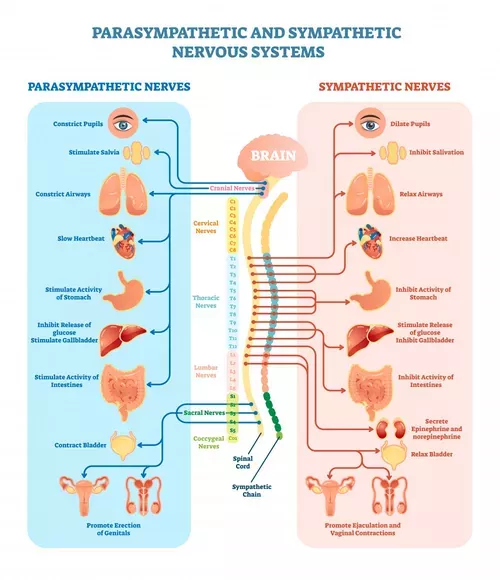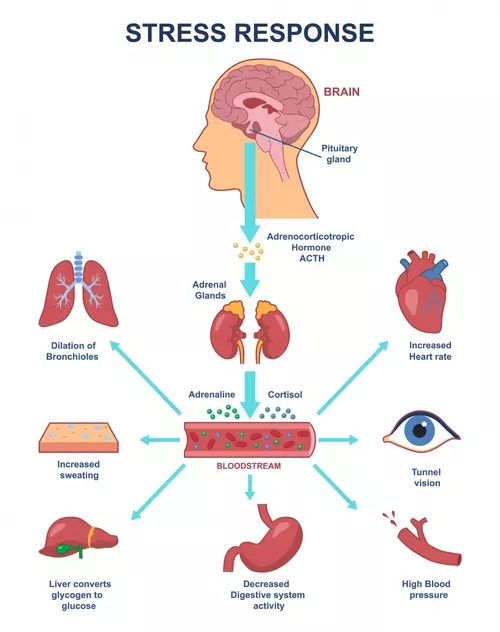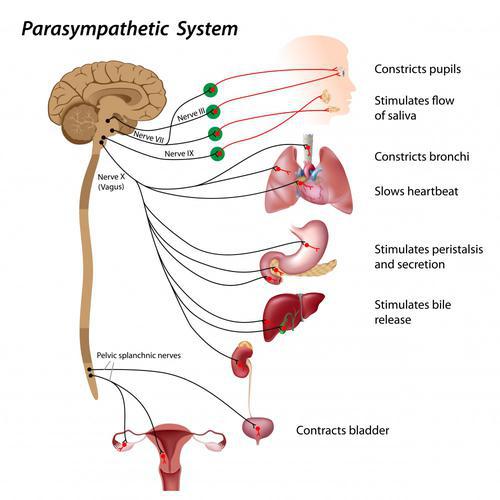
After an active summer filled with family gatherings, BBQs with friends, travel, and much more, you may feel a bit of burnout, maybe even experiencing some residual stress from all the hectic happenings.
The fall is the time of year when we begin to wind down and focus on repairing our bodies. As you can see from our website, there are many ways to heal the body, but a foundational, broad-spectrum tool is to upregulate the Parasympathetic Nervous System (PNS).

Stress is a normal reaction to exciting events like falling in love, getting a new job, or buying a home. Stress is also a hardwired survival technique built into your body as a means of protection. When stressful triggers arise, the Sympathetic Nervous System (SNS) signals the “fight or flight response,” which mobilizes you to take action and avoid danger.

The issue is that your body doesn’t know the difference between a bear chasing you and work-related anxiety. Your body’s stress response is perfectly healthy when a real emergency (like a bear chase) exists. Still, you may burn out over time if your body constantly gets stress signals for everyday issues (such as work-related anxiety).
When your body goes into panic mode, your sympathetic nervous system is activated to protect you from stress. Your brain triggers the adrenal glands to secrete hormones like cortisol and epinephrine (adrenaline). The rest of your body is then alerted to these symptoms, equipping you with emergency fuel and energy in reaction to your panic.
After the initial stress response, your body attempts to return to homeostasis (its stable state). But your body will remain on high alert when your stress reactions are too strong or triggered too often.
When the body continues to function in this wired state (never fully returning to the rest state), your emergency resources are depleted, and your body starts to shut down. This final burnout stage represents your body’s inability to cope with continuously high demands. After all, it’s not natural to constantly feel like a bear is chasing you.
Just as the sympathetic nervous system turns on the “fight or flight response,” the Parasympathetic Nervous System (PNS) turns it off. The PNS helps the body conserve energy and rest. Going from “fight or flight” to “rest, digest, repair” is critical for your well-being.

Unfortunately, a return to relaxation doesn’t occur promptly for most people in today’s fast-paced society. While we’re all running around in panic mode from our everyday worries, chronic stress disrupts the natural balance required for optimal health, speeding up the aging process and increasing the body’s susceptibility to illness. Finding ways to activate the relaxation response is vital to restoring and repairing the body.

